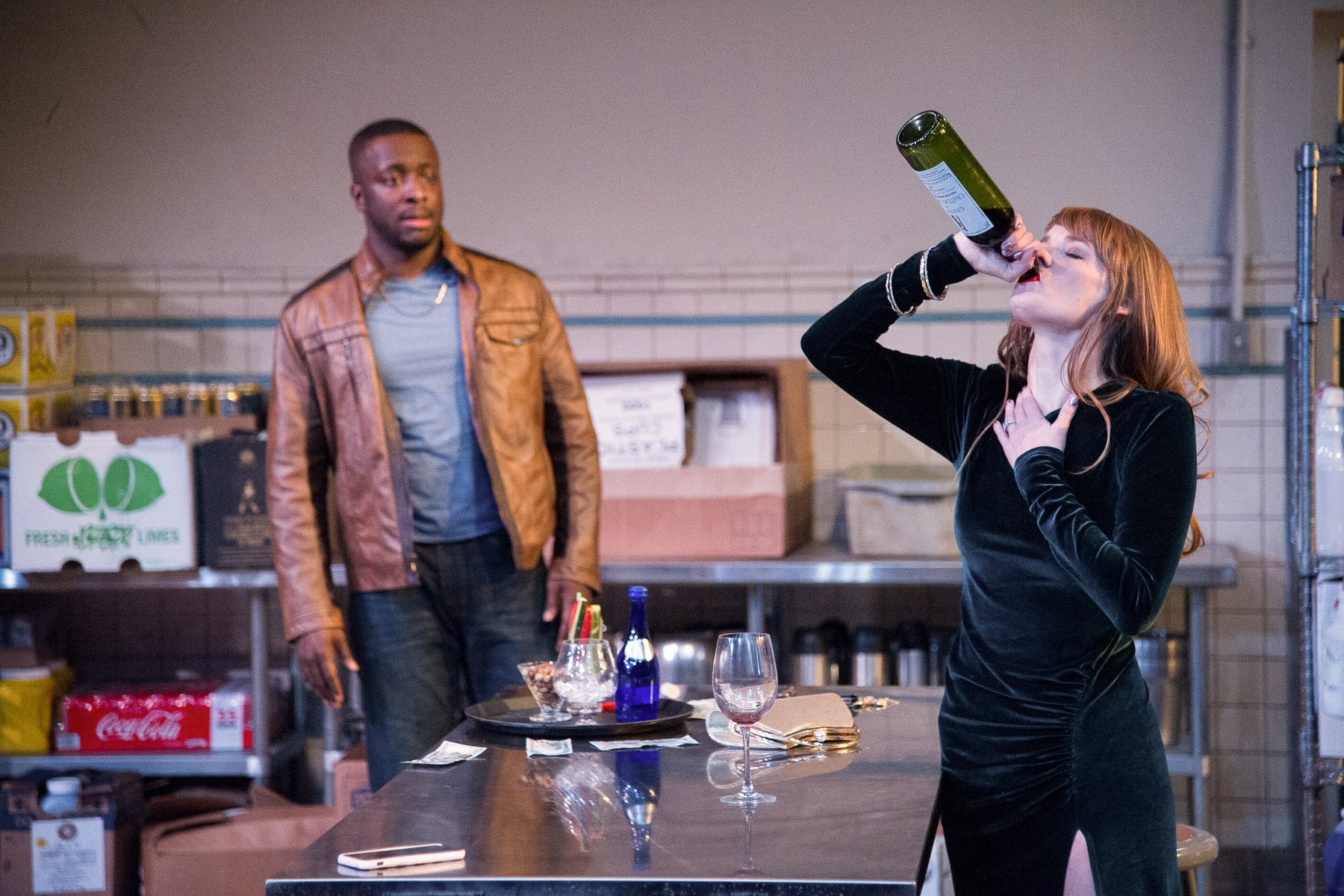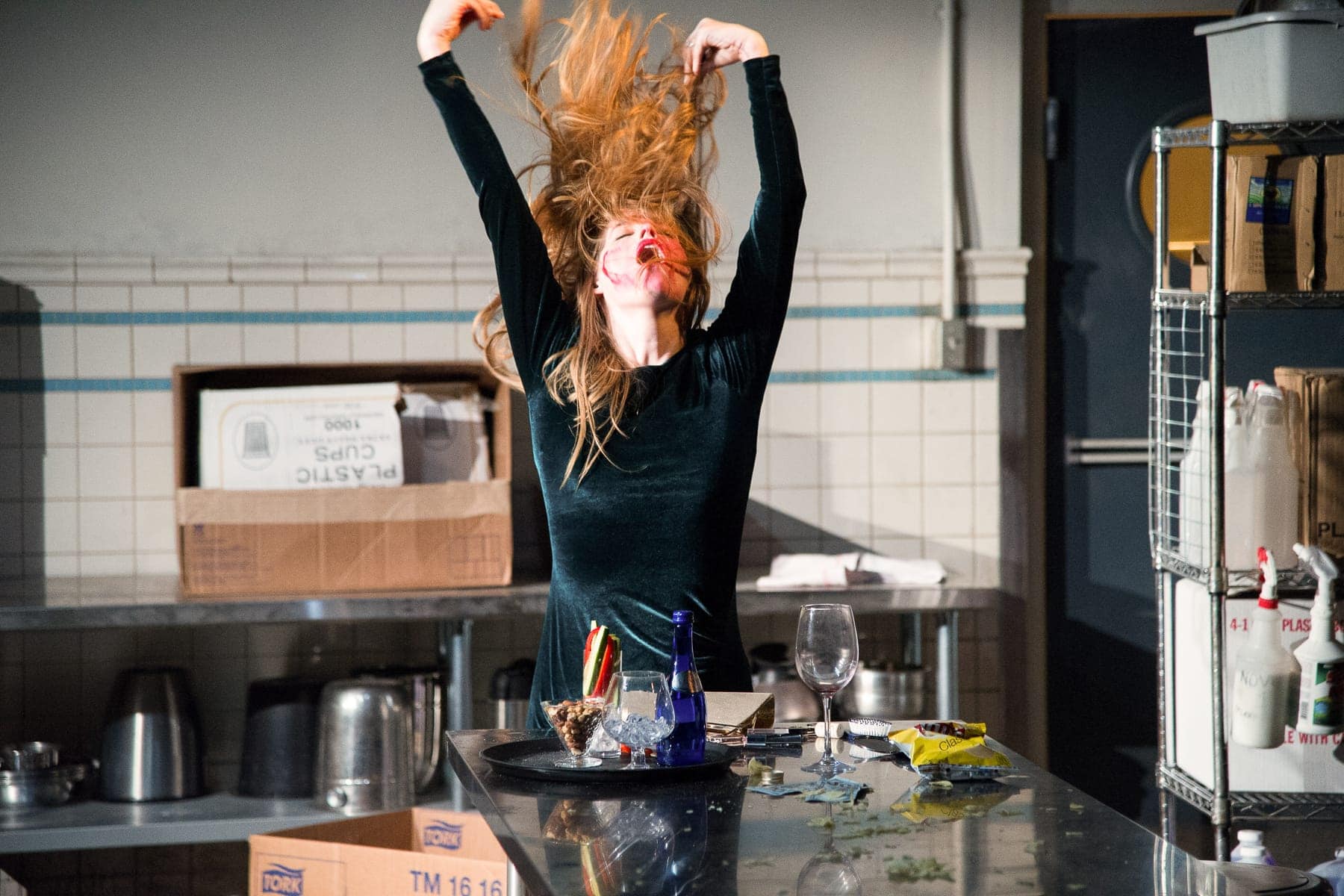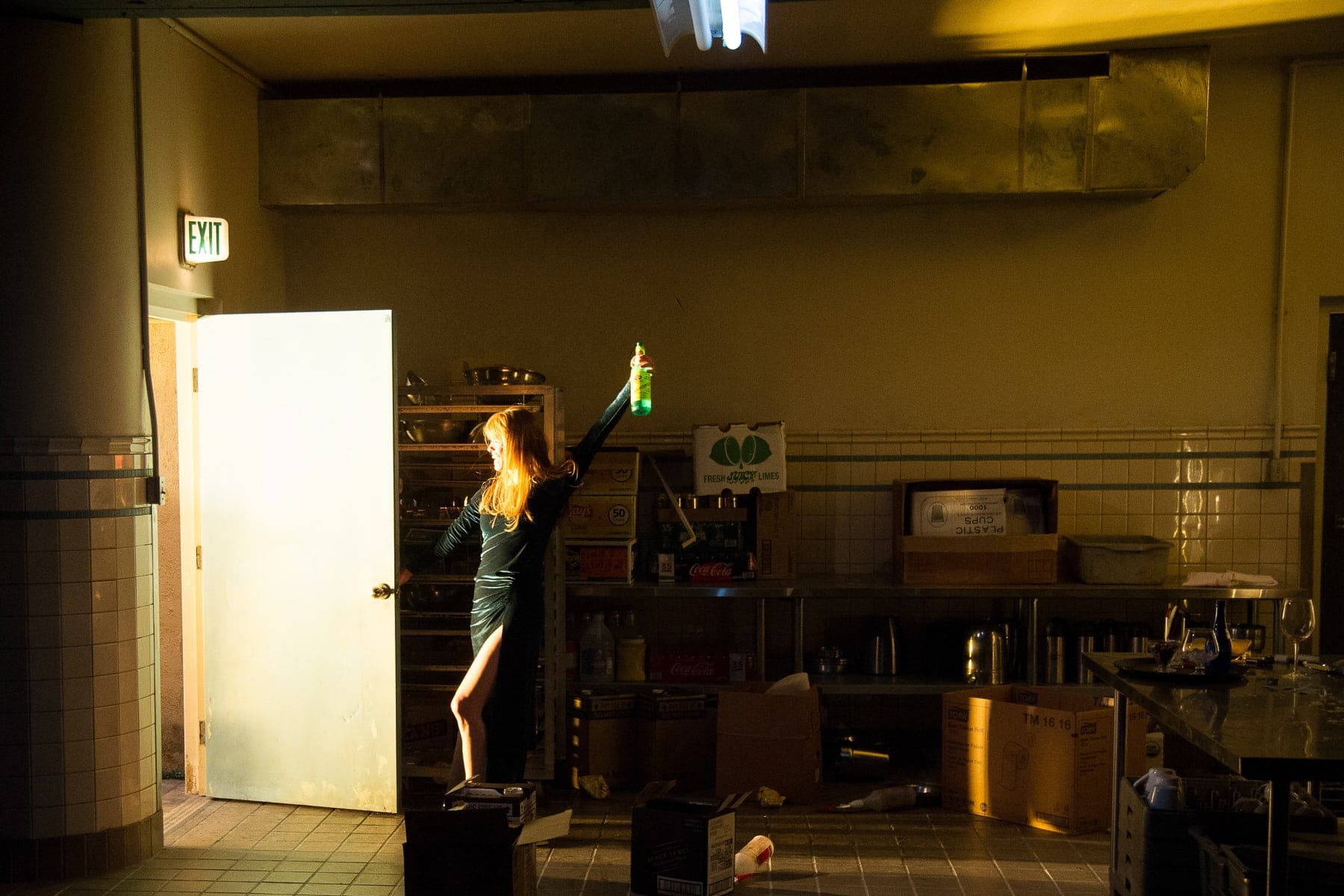Queen of Basel by Hilary Bettis, now on the boards at Studio, is scathingly brilliant. One walks out gobsmacked. (I completely concur with my colleague Bob Ashby’s astute review.) But watching Queen of Basel reminded me of something about theatergoing that I rarely hear discussed: You can walk out of a great play feeling a little icky and that’s okay.
Bettis subtitled Queen of Basel “an unapologetic response to Strindberg’s Miss Julie,” and that it is. In Strindberg’s 1888 original, a lusty valet named Jean, who works for a powerful count, manipulates and rapes his employer’s daughter, a wild and spoiled young woman named Julie who ultimately kills herself. It’s a classic dead white man’s wet dream: Get the rich bitch.
How Bettis came to write her rejoinder is interesting. An award-winning playwright and producer, she was approached to adapt Miss Julie by Michel Hausmann, artistic director and co-founder of Miami New Drama. He considers Bettis “a bad-ass feminist and a genius writer,” he has said, and he was fully aware that the play is “morally repulsive, because it’s profoundly misogynistic.”

Bettis told him: “I fucking hate that play.”
Hausmann replied: “Precisely—that’s why I want you to tackle it.”
He got a yes from her, obviously. And the extraordinary play she wrote “is beyond what [he] had hoped.” Bettis “made it possible for this story to be told in the 21st century. She took away any sense of misogyny, and she gave the characters a level playing field, so it could be three-dimensional.”
Queen of Basel tosses out most of Miss Julie, keeping mainly the cast of three: Julie, now the socialite daughter of a wealthy real estate developer; John (Jean), now an Afro-Cuban Uber driver; and Christine, a minor character in Miss Julie now a Venezuelan refugee with a surprising past. The original setting, the kitchen of a Swedish estate, is now the back room of a commercial-grade kitchen in a swanky Miami hotel owned by Julie’s father. But the characters’ storylines are radically reimagined. Christine is a cocktail waitress in the hotel. John and Christine are engaged. Between John and Julie sexual sparks fly. Julie steadily unravels (sober for five years, she gets wasted on wine). John and Julie have consensual sex on the beach. Christine gets revenge. Julie commits social suicide.

There’s lots more texture than that, of course. Bettis gives us rich portraits of her three characters with multiple ethnic, cultural, and regional identities (“In a global world of immigrants, what are any of us?” Bettis says in an amazing artistic statement on her website.) Bettis’s script erupts with the frisson of race, class, and sex dissonance. The humor is acidic; the passion and pathos, wrenching.
But has Queen of Basel actually wrung the misogyny out of Miss Julie?
About midway through, Julie has a speech about wanting to be philanthropic, to give money to help save refugee children. It’s a sentiment that seems to come out of nowhere. It doesn’t sound like her at all. Whatever generosity in her we’ve seen is always self-serving. Turns out she really doesn’t control any money; her father does. So watching the debauchery and final debasement of the character—a debasement Julie bravely defies—I could not tell whether to view her as a tragic figure or as just a really messed-up and spoiled rich chick.

The actor playing the role (Christy Escobar) is absolutely riveting, but Bettis gives us little that might elicit empathy or pity or admiration for the character. Instead, we’re left feeling kind of icky—seeing her as simply selfish, superficial, and self-destructive. Which is to say: While Bettis has managed to empty Miss Julie of Strindberg’s misogyny, there is nothing about Queen of Basel to prevent it from tapping into our own.
Running Time: One hour and 20 minutes, with no intermission.
Queen of Basel plays through April 7, 2019, at Studio Theatre, 1501 14th Street, NW, Washington DC. For tickets, call 202-332-3300 or go online.




